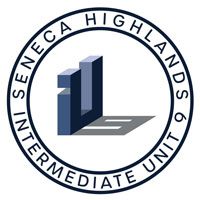Training & Consultation Services (TaC)
Our educational specialists are available to provide technical assistance and professional development in the presentation, interpretation, and implementation of all phases of the Individuals with Disabilities Education Act (IDEA). We accomplish this directive by designing professional development and providing technical support to improve educational results for all children to ensure the effectiveness of special education programs and services. We receive funding for these services from IDEA Component II Funds.
Transition Guides
What will your child’s life be like once he or she has left high school? Thinking about any child’s future is often difficult, especially if the child has special needs.
Assistive Technology
Assistive technology (AT) helps teachers respond to diverse student needs and access, participate, and/or respond to instruction within the general education classroom. As defined by IDEA 2004, assistive technology is any item, piece of equipment, or product system, whether acquired commercially off the shelf, modified, or customized, that is used to increase, maintain, or improve the functional capabilities of a child with a disability. Devices range in complexity from no- or low-tech tools to high-tech tools.
To request a consultation for a student’s need for assistive technology, please complete the AT Referral form.
Assistive technology includes
- any tool or device that the student uses to do a task they could not do without it, or any tool that a student uses to do a task more easily, faster, or in a better way (Reed & Lahm 2005); and
- the services the student (or team) needs to acquire the device or to acquire the skills to use it.
Legal Definition
“Assistive technology service means any service that directly assists a child with a disability in the selection, acquisition, or use of an assistive technology device.” 34 CFR 300.6
AT Services
- Purchasing, leasing, or providing for acquisition
- Selecting, designing, fitting, customizing, adapting
- Coordinating and using other therapies, interventions, or services with AT devices
- Training or technical assistance for child, family, or professional
AT Devices
AT devices can be electronic or non-electronic. AT ranges from “low” to “high” technology as described below:
- No or Low Tech: Simple, non-electric solutions that provide access and improve function for the student by enhancing expressive and receptive communication skills. These AT solutions may be created or purchased commercially at relatively low cost and typically include easy-to-use equipment, such as dry-erase boards, clipboards, laminated photographs, photo albums, three-ring binders, PECS, etc.
- Mid Tech: Solutions that require more electronics, some maintenance, and some training. May be relatively simple or commercially available electronic devices such as portable word processors and talking calculators. Examples of mid technology include voice output devices, timers, and calculators. We use these primarily as a means to support expressive communication and enhance classroom participation, focus attention on various skill areas, and assist in the development of social skills.
- High Tech: More complex electronic devices such as computers and specialized software. High-tech devices often incorporate multiple features and may be used to meet a variety of needs. These typically involve high-cost equipment, such as computers and adaptive hardware (touch window, software, and trackballs), accessory equipment (digital cameras and scanners), video cameras, and complex voice output devices.
Modification Tips
Important tips in selecting and utilizing assistive technology for children with autism:
- Always try less intrusive low-technology strategies first.
- Match the technology to the needs and abilities of the individual child.
- Analyze the environment to determine what type of device will best support the child’s participation.
Training and Technical Support Topics
- Guidelines that IEP teams use for consideration of AT
- Determining the need for a student’s use of AT and types of assistive technology available
- Bookshare.org (online library of copyrighted content for students with qualified print disabilities)
- SETT Framework
Autism Spectrum Disorders (ASDs)
Autism Spectrum Disorders (ASDs) are a group of complex neurological developmental disabilities characterized by problems with communication, social interaction, and patterns of interest and behavior. All individuals with ASD are important members of the school community. People with ASD contribute to the school community and also benefit from meaningful participation within a community of learners. Autism support services provided in the public school system address needs primarily in the areas of communication, social skills, and/or behaviors consistent with those of autism spectrum disorder.
To request ongoing consultation for a student identified with ASD, complete the Autism Team Referral Form and obtain parental consent.
Inclusive Practices / Least Restrictive Environment (LRE)
Our commitment to Least Restrictive Environment (LRE) for each student is to ensure that Individualized Education Program (IEP) teams begin with the general education setting (with the use of Supplementary Aids and Services) before considering a more restrictive environment.
Training and Technical Support Topics
- Differentiating Instruction
- The Framework for Access and Belonging (FAB)
- Essential Elements
- PASA Dynamic Learning Maps (DLM)
- Explicit Instruction
- Executive Function Skills
Intensive Interagency Coordination
The Interagency Coordinator provides links between area schools, child-serving systems, and families to facilitate collaboration in meeting the needs of students. The Child and Adolescent Service System Program (CASSP) coordinates and facilitates agency services for children and adolescents. The Interagency Coordinator facilitates the Local Transition Council (LTC) within Cameron/Elk, Potter, and McKean Counties.
Local Transition Council (LTC)
The Local Transition Council promotes effective transition for eligible youth from school to adult life. Its mission is to ensure local coordination with schools, businesses, service providers, and families to achieve successful outcomes for individuals within the community.
Training and Technical Support Topics
- Parent and Agency Connections (parent overview sessions, agency guest sessions)
- Agency Partnerships Program Development: Statements within the IEP
- Local Transition Council (LTC) Support
- The Child and Adolescent Service System Program (CASSP)
Multi-Tiered System of Support (MTSS) – Behavior
Positive Behavior Interventions and Supports (PBIS) provides a multi-tiered approach to social, emotional, and behavior support. The broad purpose of PBIS is to improve the effectiveness, efficiency, and equity of schools and other agencies. PBIS improves social, emotional, and academic outcomes for all students, including students with disabilities and students from underrepresented groups.
Positive Behavior Support (PBS) Defined:
“PBS is an applied science that uses educational methods to expand an individual’s behavior repertoire and systems change methods to redesign an individual’s living environment to first enhance the individual’s quality of life and second to minimize his or her problem behavior” (Carr, et.al. 2002)
Sources and Philosophy of Positive Behavior Support:
- Applied Behavior Analysis (ABA)
- Inclusion/Normalization Movement
- Person-Centered Values
Training and Technical Support Topics
- School-Wide Positive Behavior Intervention & Support: Tier 1
- School-Wide Positive Behavior Intervention & Support: Advanced Tiers
- School-Wide Information System
- School Climate Leadership Initiative
- Safety Care
- Functional Behavior Assessment & Positive Behavior Support Plans
- Quality Indicators of Emotional Support Services and Programs
Multi-Tiered System of Support (MTSS) – Literacy
The literacy consultant provides academic support to improve literacy outcomes through the provision of evidence-based practices, resources, training, and technical assistance.
Training and Technical Support Topics
- MTSS – Literacy
- Curriculum Trainings
- Language Essentials for Teachers of Reading and Spelling (LETRS)
- Direct Instruction Literacy Programs (Reading Mastery, Corrective Reading and Rewards)
- Science of Reading
- PA Science of Reading Course
Multi-Tiered System of Support (MTSS) – Mathematics
Within an MTSS model for mathematics, cross-disciplinary teams use a problem-solving process to facilitate shared ownership for enhancing mathematics outcomes. Teams expand their continuum of evidence-based practices and reliable and valid data sources. The development of the infrastructure and implementation efforts occur within the context of culturally responsive practices, positive behavioral supports, and family engagement.
Training and Technical Support Topics
- Concrete, Representational, Abstract (CRA)
- Early Numeracy
- Progress Monitoring
Secondary Transition
Secondary transition is the process of preparing students for life after they leave high school, including participation in post-secondary education or training, employment, and community living. We often refer to these three areas as “post-secondary outcomes,” which are the driving force behind Individualized Education Programs (IEPs) written for students in high school.
Training and Technical Support Topics
- Indicator 13: Effective Transition Practices / IDEA Compliance
- IEP Alignment and Best Practice Writing Review
- Present Levels of Academic Achievement and Functional Performance (PLAAFP)
- Measurable Annual Goal Writing Workshop
- Transition Grid: Services and Activities for Success
- Transition Assessment: Resources for Work Skills and Soft Skills Development
- Academic Standards for Career Education and Work : Putting into Practice
- Indicator 14: Overview of Post School Outcomes
- Building Administrative Capacity to Support Transition-Aged Youth
- Summary of Academic Achievement and Functional Performance (SAAFP): Basic Steps
- Annual Transition Planning and Review Meetings
- Transition 101: Parent Awareness Overview
BrainSTEPS
BrainSTEPS (Strategies Teaching Educators, Parents and Students) is a brain injury school re-entry consulting program. Service options include the following:
- Educational strategies
- Organizational strategies
- Behavioral strategies
- Environmental modification strategies
- Training for new school staff or school team
Refer a student to BrainSTEPS.
Contact your local BrainSTEPS team via email.
De-escalation Training for Transportation Providers
De-escalation training for transportation contractors, drivers, and van aides teaches techniques and strategies for defusing challenging behavior while on school vehicles.
Education Benefit Review (EBR)
The purpose of the EBR is to determine whether a student’s current IEP is reasonably calculated for the student to receive educational benefit. The EBR process involves comparing the student’s current IEP with the prior two IEPs and guides school teams through the examination of specific components of the IEP.
An EBR training workshop is available for administrator and staff development.
Family Engagement
Recognizing and investing in family engagement policies and practices is key to closing the achievement gap and supporting the success of all students (Harvard Family Research Project, 2010). Successfully engaging families as partners requires local education agencies to
- focus on building trusting, collaborative relationships among teachers, families, and community members;
- recognize, respect, and address families’ needs as well as their differences; and
- embrace a philosophy of partnership where power and responsibility are shared (Henderson et al., 2007).
Family and Parent Sessions Available
- Inclusive Practices
- Positive Behavior Supports
- Special Education 101
- Assistive Technology
- Disability Awareness: Autism, ADHD/ADD, etc.
- Homework/Study Skills
- Bullying
- Transition 101 – Parent Awareness Overview
- Parent and Agency Connections

